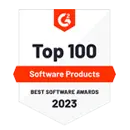eLearning has been shown to enhance learning retention rates by up to 25% and increase income growth for 42% of organizations, demonstrating its significant role in driving business success. However, the effectiveness of eLearning largely depends on having a robust learning management system (LMS).
In this article, we explore the key features of an effective LMS that can improve your training results and positively affect your financial performance.
What Makes a Good Learning Management System?
Every organisation has a different set of objectives when using a Learning Management System to deliver training. With that in mind, what makes a good LMS is very much dependent on the individual needs and wants of each application.
In general, the least that LMSs should provide is the ability to deliver, track, and monitor on a centralised platform. The chosen platform should be simple to use, intuitive and easy to update and pivot to meet the ever-changing demands of learners and training programmes. Adaptive platforms enable longevity and ensure training programmes are future-proofed, thus offering a high ROI.
Another thing to consider when looking at what makes a good LMS is that everyone learns in different ways. This makes it important to have a good level of customisation, providing learners with the chance to configure the platform in a way that best suits them. Accessibility needs also need to be catered for thoroughly.
The Must-Have Features of a Good LMS
No matter who your LMS is designed for, here are the essential features of both the LMS and training programs that you should consider and be on the lookout for:
1. Ease of use
Learning can be challenging enough without adding the difficulty of navigating a complex or unintuitive LMS, especially for first-time eLearners. Poor user experience often leads developers to spend up to 50% of their time reworking projects, resulting in significant time and resource wastage.
To avoid these issues, invest in an LMS with a user-friendly interface. Whether learners are searching for courses or administrators are uploading content and tracking progress, ease of use is crucial and should not be overlooked in your training planning.
If you don't have a team of experts to manage your LMS, consider partnering with a managed learning service provider to handle your training program effectively.
2. Personalisation
One of the key advantages of eLearning is its support for self-directed learning, allowing learners to progress at their own pace and focus on the subjects they consider most important.
An effective LMS should offer a range of personalization features that enable users to set specific goals and address their knowledge gaps.
Personalization goes beyond merely choosing courses; it also includes allowing users to form customizable groups tailored to particular curricula, making it easier for individuals with shared objectives to access relevant resources. Additionally, forums provide a platform for discussions and can serve as a valuable feedback channel for enhancing course quality.
3. Accessibility
Another major advantage of eLearning is its flexibility, allowing learners to engage with their training from anywhere and at any time, as long as they have internet access and authorization for the LMS. Whether they're at home, traveling, or in a café, an LMS enables learning on the go. Additionally, eLearning platforms should be optimized for use on smartphones, tablets, and other devices.
Accessibility also means that the LMS should accommodate users with disabilities. Inclusivity is a crucial element in effective workforce development.
4. Gamified elements
When a learning task is perceived as difficult or monotonous, reframing it as a fun competition can significantly increase engagement. Introducing elements like leaderboards, trophies, point systems, and timers can create a sense of competition and achievement, motivating learners to actively participate in the LMS.
This is the essence of gamification and why it has gained popularity across various industries. According to a study published in the Journal of Education for Business, 67.7% of students found gamified courses more motivating than traditional ones. For businesses, gamified training boosts employee engagement by 60%.
5. Scalability
If business growth is crucial for you, scalability must be a primary factor when selecting an LMS. While it may perform well initially, its true value is demonstrated by how it handles increased content formats, additional courses, more users, and larger volumes of data as you expand.
A key indicator of an LMS’s scalability is its cloud accessibility. Being cloud-based eliminates the need to install software on each device, making it much simpler to scale eLearning as your organization grows.
6. Reporting and tracking
A robust LMS should be capable of gathering detailed data on user interactions with the platform, such as course progress and completion rates. Ideally, the system should offer granular tracking features, including information on login times, course completion durations, and the number of attempts users make to answer quiz questions correctly.
It is crucial that this data is presented clearly through analytics reports for LMS instructors and administrators. This allows for informed decision-making to refine, enhance, and prevent recurring issues.
7. Security
Data privacy is increasingly crucial as apps and internet-connected platforms collect personal information and contact details from users. Learning management systems are no exception, especially when accessed from personal devices at home. It’s essential to protect your users from data breaches and information leaks.
When selecting an LMS, look for privacy control features and a reliable data backup system. Ensure the vendor provides assurances about the security of their servers.
8. Course creation
Many LMS platforms offer course creation features with customizable templates. However, a basic LMS may quickly prove restrictive in terms of course development.
Check if the LMS you're considering allows you to incorporate assignments and tests into courses, create a resource center for external links and additional reading, and build an internal information repository.
9. Cloud servers
Not all organizations have the capacity to securely store eLearning resources and sensitive data internally. For small to medium-sized business owners seeking an LMS for their employees, a cloud-based hosting solution is often the best choice.
A cloud-based LMS means the vendor handles all data hosting, relieving you of technical maintenance concerns. Additionally, it allows for easy scaling without the need for software installations. Security is managed by the vendor, reducing the resource burden on your end as they take care of protecting your data.
10. Learner support
No LMS is without its flaws. Regardless of the platform you choose, your company will likely encounter issues, whether they stem from technical problems or user errors. Even the best features are of little value if you can't access them or if you don't receive adequate support from the vendor.
Given that users will access the LMS from various locations and at all hours, it's essential for the vendor to offer 24/7 support. They should be responsive to inquiries via email, phone, or online chat. At a minimum, the LMS should include troubleshooting or self-help guides.
Additionally, if your learners are spread across different regions, multilingual support is crucial.
Make an Informed Purchasing Decision
When choosing the best LMS for your business, it’s crucial to define its intended purpose. Are you using it for internal staff training, channel partner or customer education, or end-user training?
Each audience has unique needs, so identifying the features that meet those specific requirements is essential.
As technology evolves, more companies are transitioning their training and development online, increasing the demand for effective LMS solutions.
Don’t settle for the first LMS you come across. Take note of the features that appeal to you, and compare their advantages and disadvantages. Seek feedback from friends, colleagues, or your professional network for additional insights.
As more business leaders ask, "What should I look for in an LMS?" we hope this guide has offered the clarity you need.








